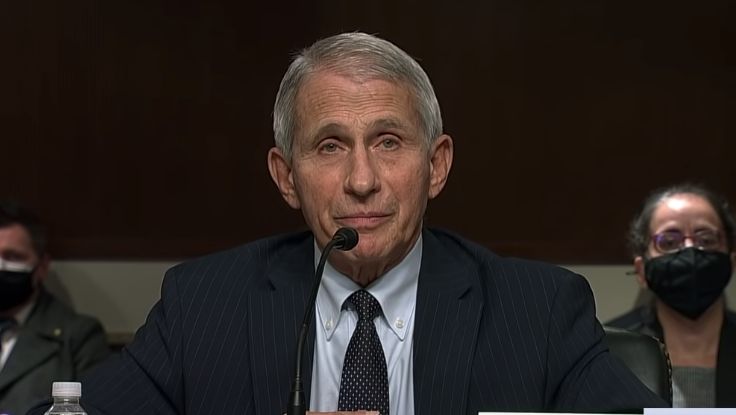Politics
Fauci Makes Major Admission, Proves ‘Conspiracy Theorists’ Right Again

Dr. Anthony Fauci has made an admission that could vindicate many of his critics. During recent closed-door testimony, Fauci, according to Senator Rand Paul (R-KY), acknowledged approving research without thoroughly reviewing it. He also showed uncertainty about the oversight processes for foreign research, including that conducted in Wuhan.
This revelation follows a pattern of behavior where Fauci’s private communications seem to contradict his public statements. Sen. Paul, drawing parallels with Bill Clinton’s infamous “I don’t recall” stance, pointed out Fauci’s frequent memory lapses on crucial pandemic-related information during the testimony.
“Most of the time if it’s an important question he can’t remember, but he did admit that you know what, he approved all of the research but he didn’t read or review any of it.” said Sen. Paul.
“What he says in public is largely a lie.”
WATCH:
As the Director of the National Institute of Allergy and Infectious Diseases (NIAID), Fauci was at the forefront of the United States’ response to the pandemic. Moreover, his inconsistent statements on key public health measures, such as school closures and mask usage, have come under scrutiny.
While publicly advocating for stringent measures, his private correspondences reportedly tell a different story. In a notable example, Fauci advised a colleague that masks were ineffective against the virus, contrary to his public endorsements of mask-wearing.
“But then in public he wears three masks, in private he tells his colleagues you don’t really need to wear one,” Sen. Paul explained.
His stance on mask mandates has changed as the situation with COVID-19 has evolved. Initially, during the early stages of the pandemic, there was some hesitation about recommending widespread mask usage due to concerns about supply shortages for healthcare workers.
However, as more was understood about the virus, particularly its transmission through respiratory droplets, Fauci and other health experts began to strongly advocate for the use of masks in public settings to mitigate the spread of the virus. His recommendations were often in line with those of the Centers for Disease Control and Prevention (CDC).
The gravity of the contradictions has been amplified by the global impact of the pandemic, with millions of lives lost and unprecedented disruptions worldwide. While discussing the Biden administration, Sen. Paul said, “I think it’s sort of an indictment though, really of the Biden administration, that the people around the president don’t think he’s important enough to be informed.”
The response to COVID-19, including mask mandates, became highly politicized. Fauci, as a prominent figure in the pandemic response, often found himself at the center of this polarization. Some accused him of overstepping his role as a scientist by making what they perceived as political statements, while others praised his guidance and adherence to scientific principles.
Fauci’s prominence made him a symbol of trust in scientific expertise for some and a figure of skepticism for others.
As the narrative unfolds, questions linger about the true extent of Fauci’s knowledge and his role in the pandemic’s origins and response.

